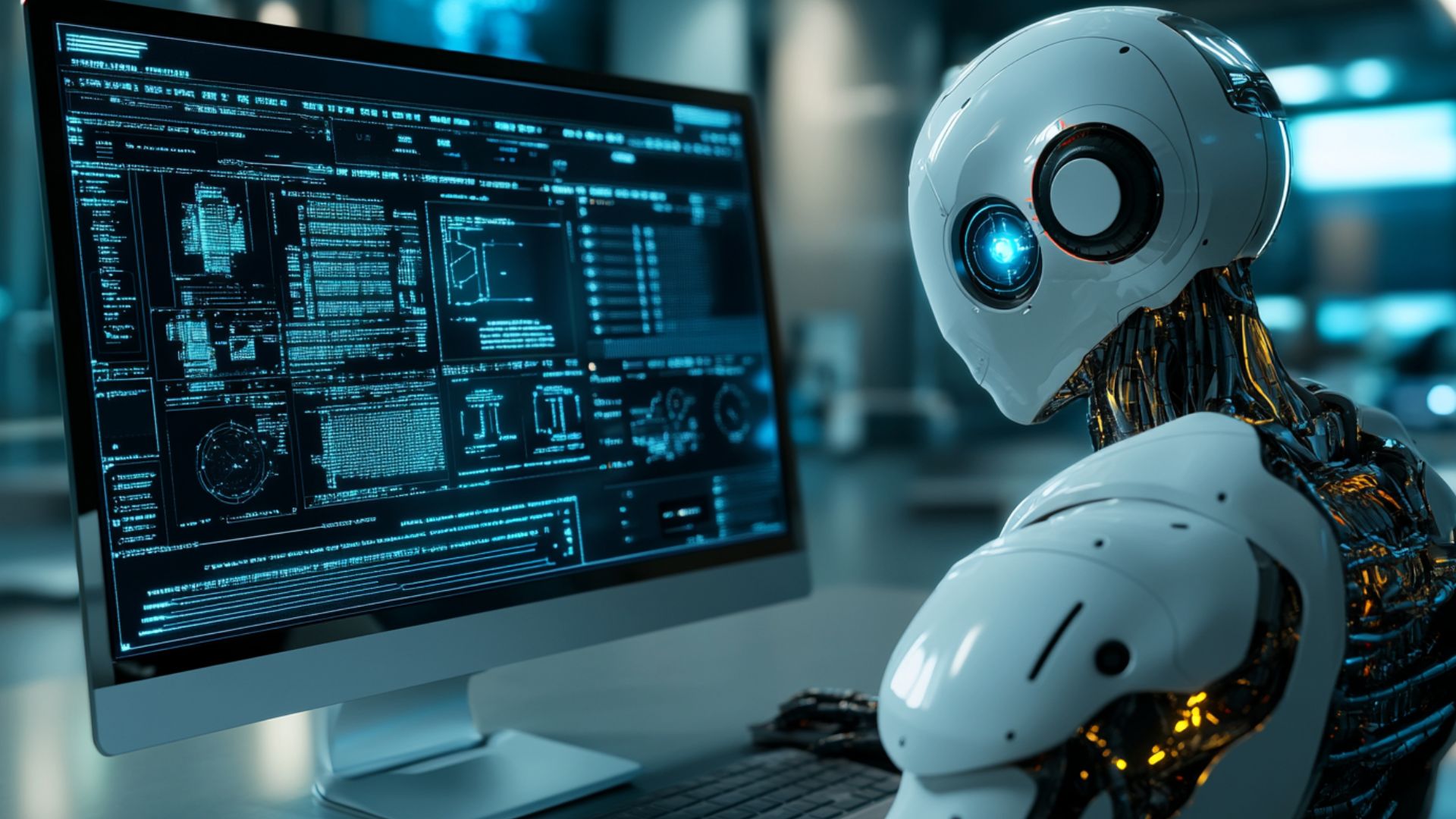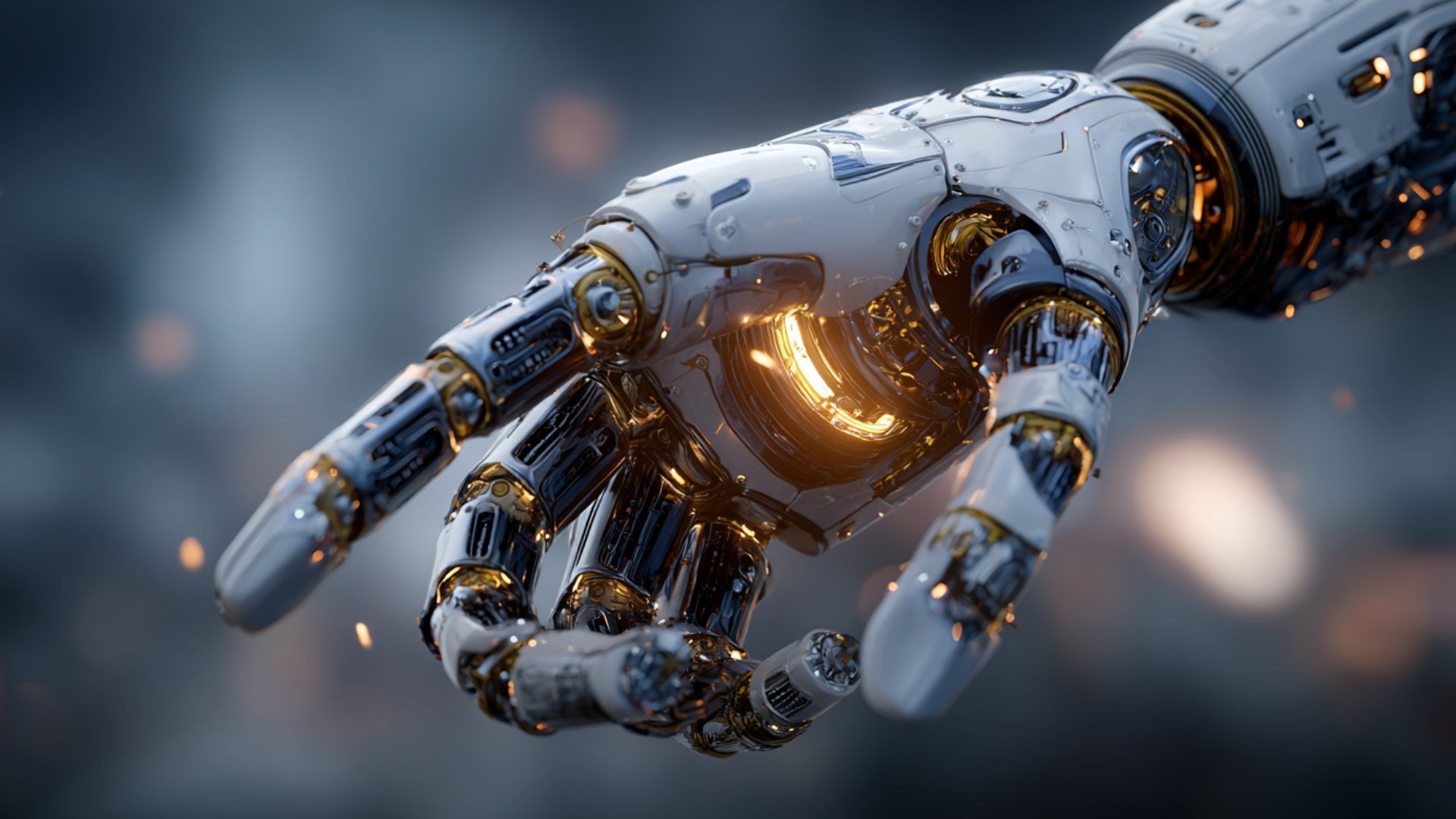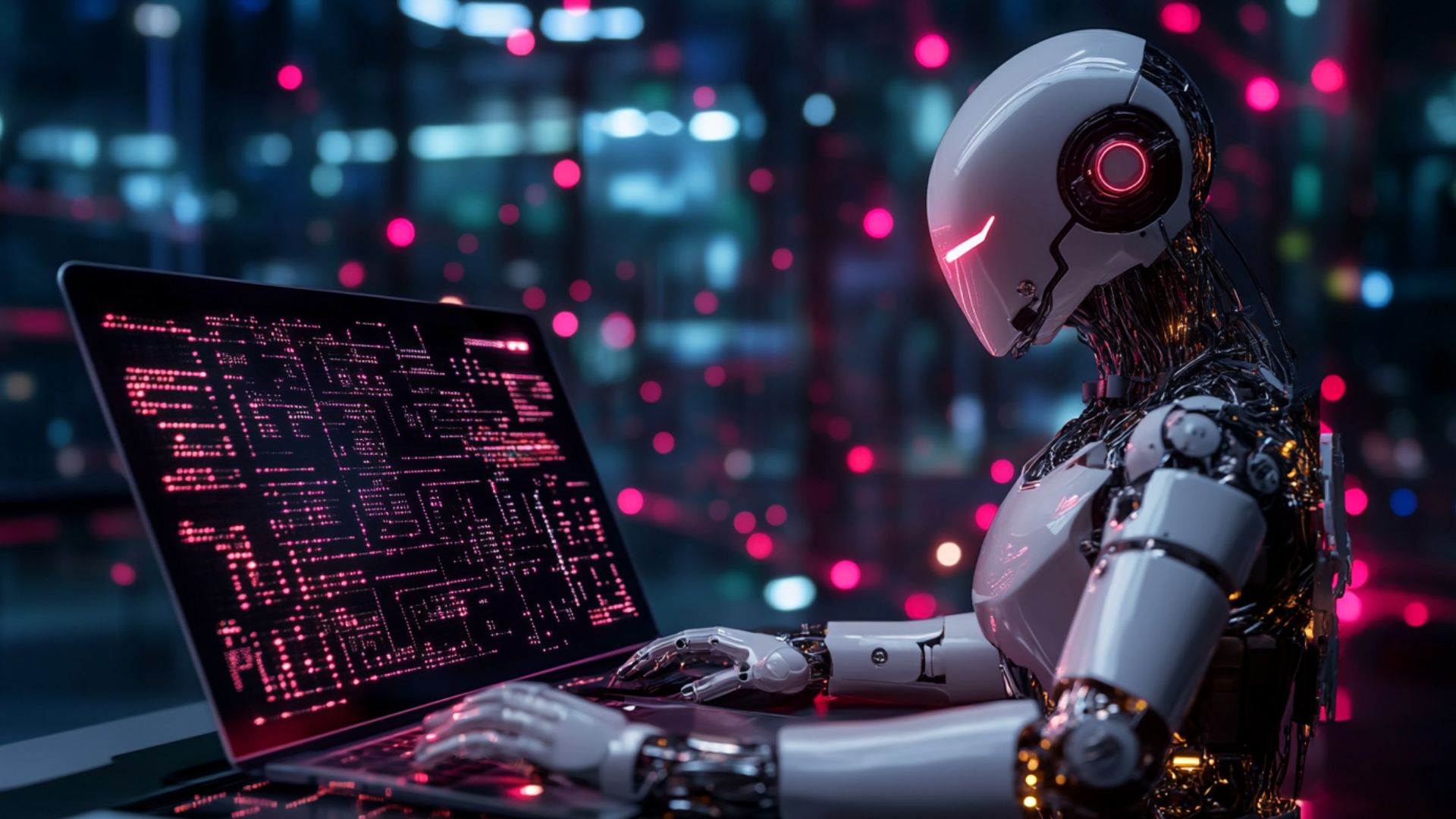The Role of AI in Education: Personalized Learning

The Power of AI in Education
AI is improving education in various ways. As an illustration, it can personalize broad learning. We're not merely discussing automating administrative chores any longer. Data scrutiny also results in the retrieval of precious insights. AI is a potent implement. Its progression is swiftly progressing. However, it lacks human traits. It can't contemplate autonomously. Therefore, it cannot supplant educators at this juncture. How can AI be used in education? We will answer it.
Personalization is still an exceptional approach to employing technology. Utilizing diverse methodologies, synthetic intellect dissects everything. It can demonstrate how adeptly a pupil is performing. This occurs with excellent precision. Synthetic intellect can furnish suggestions. It can adjust educational substance to the prerequisites. This sanctions learning at a convenient pace. Instructors can also reap the rewards from it. They can pinpoint predicaments in their methodologies. It can also aid scholars in their learning.
There are a lot of advantages of AI in education. AI optimizes them superbly. It liberates instructors' time. This permits an enhancement in everyone's psychological development. It also empowers them to get better ready for the educational process. This has a favorable influence on the overall progression of educational establishments.
Data analysis is the specialization of synthetic intellect. It can dissect almost anything. This permits more adaptable curriculum scheming. It also authorizes the plotting of deeds for the complete school in its entirety.
Personalized Learning: Tailoring Education to Individuals
Tailored learning is vital for the future. Personal approaches expedite learners' advancement, whether elders or juniors. AI is already aiding in this progression. Thanks to its data scrutiny proficiencies, it is irreplaceable. Educators attempted to accomplish this independently earlier. It didn't succeed owing to disparate standpoints. AI can surmount this impediment.
- AI personalized learning content accurately. Machinery continuously scrutinizes everything that's occurring. It can pinpoint a student's frailties, empowering it to propose superior learning suggestions. It can bridge knowledge disparities with skilled aid.
- Response is immediate. Pupils don't need to await an educator as the machinery operates nonstop. It can assist with any query in moments.
- Educators can utilize this. The machinery can aid in generating educational content. It can be openly employed in classrooms, though revisions might be requisite. Recall, we noted that technology is a helper, not an autonomous instructor.
- This boosts incentive. Learners will feel more at ease because of a heightened degree of personalization. It is one of the many advantages of AI in education. Synthetic intelligence has expedited the accomplishment of this. Instructors have a minimal role.
The system should function well. It should incorporate censorship, especially when it comes to school. Classic AI already comes with censorship. Your school needs to review this aspect. The technology may not be suitable for some types of lessons. The technology is self-learning, so there shouldn't be any issues with it.
The AI-Personalization Ecosystem

The personalized AI ecosystem is evolving rapidly. This technology is adaptable for learning. Students can use it, but teachers can also make use of it. They can access an extensive database, which is essential for enhancing their own suitability.
- Algorithms precisely analyze students' data. It is a crucial part. They understand the learning style and what students need for optimization. This is what provides personalized content. Algorithms are everything for AI.
- Students can receive individual consultations, which is the best thing AI can offer. Teachers sleep at night, but AI never sleeps.
- Technology can predict the future based on past data. For example, if you've been working with AI for a while, it analyzes you and your habits.
- AI assigns grades, taking over administrative tasks. Now, teachers don't need to worry about this. This is excellent for students. This is a great example of artificial intelligence in education.
- Decision-making about education. AI analyzes vast amounts of information. Teachers can explain research papers in simple terms, including the latest developments. The old school curriculum fades into the background.
The personalization system is impressive, but cybersecurity experts remain skeptical. It's unclear what safeguards are in place for AI data - concerned experts about data leaks. AI knows everything about you, which can be dangerous.
Applications Across Educational Levels
Technology can apply anywhere. It will captivate elementary school students. High school students will discover it as a valuable assistant. University students will appreciate it. Teachers will actively utilize it. It serves as an effective tool for any area of study.
- Let's start with early education. You can use it right from the beginning for a personalized experience. It will build its database over several years. It is one of the important advantages of AI in education. It can track a child's development from start to finish. This allows focusing on careers. Automatic allocation is acceptable for modern society. People don't know where to go to study. People don't know where to work after school. Personalized data would help them with this.
- Middle education is also important. Here, we introduce complex subjects to students. Technology can enhance them. We can conduct assessments automatically. AI can also conduct exams. This is an unbiased approach to students. They will like it, and it will improve their performance.
- In higher education, it's the same. Subjects become more complex. They focus on a specific category. AI can handle this as well. It will help to acquire specific knowledge efficiently. We also avoid teacher bias. This is an effective measure of learning. It is also used for creating scientific works.
Stat-Knowlab personalizes students' learning by offering rational activities. They are based on their readiness. Another example is LabTutor. It assists engineering teachers in gaining access to equipment and conducting experiments.
Benefits for Students and Educators
We've already highlighted some benefits for students and touched on the advantages for teachers. Now, let's bring it all together. For instance, consider students. As we've emphasized, personalized learning is crucial. Technology can provide this at its best. The technology is still relatively new. We can expect better results in the future. Students can rely on instant feedback, which means we will check all assignments right away. They can work on their mistakes and improve quickly. It is just one example of artificial intelligence in education.
AI won't judge; it's there to assist in learning. Some teachers could learn from it. The technology can even help align writing styles. This is especially important for law students, as it can enhance their grammar and style. This way, they'll appear professional in the workplace.
Teachers also have boundless benefits. How can AI be used in education for them? They can automate their tasks. Previously, teachers spent a long time preparing for subjects. They were creating various presentations and materials. Overall, school management will improve as well, based on AI recommendations.
Measuring Impact and Effectiveness
Assessing this technology can vary, especially when it comes to education. How you use the technology depends on your goals. Students can use it for their own needs, and teachers can use it for their students. The possibilities are vast.
- Rational assessment of students is crucial. You can use the advantages of digital workers. Until now, this was unattainable. People have dreamt of such a tool since ancient times, and they've finally got it. AI can analyze activity without bias.
- The technology can analyze engagement metrics, which is a great tool for adjusting the curriculum. The educational platform can autonomously manage the lesson. It is altering its duration as needed but within reasonable limits. Some research indicates a positive trend - AI captivates students.
- Feedback further refines AI, making it even more rational. Reviews can come from both teachers and students. Rapidly adjusting the behavior of AI is difficult. It can independently identify areas of strength and weakness. It can conduct surveys or focus groups without teacher influence. It is all with AI personalized learning.
- The technology significantly saves time, benefiting both teachers and students. We streamline administrative tasks and improve educational effectiveness. It's a win-win strategy for all parties, making learning more efficient.
- AI can sift through students. It can exclude students to improve the efficiency of others. It is ultimately enhancing the engagement of the remaining students. This acts as a preventive measure for those falling behind.
How can AI be used in education in terms of installation? Configuring AI is complex. It requires a knowledgeable individual. Incorrect settings can lead to problems. This would adversely affect both students and teachers. It's essential to keep this in mind. Once again, AI is an assistant. In the future of artificial intelligence in education, it might become a teacher. However, we're not at that level of technology yet.
The Role of Teachers in Personalized Learning

Teachers still play a crucial role. AI is just an assistant, as we've emphasized several times in the text. Technology enables teachers to eliminate bias if they choose to do so. Currently, they are performing the following actions:
- Guidelines for using AI. Managing technology is challenging, but teachers must do it. Due to the restrictions, they won't be able to ruin it. They can use it to enhance their curriculum.
- AI can interpret data with the help of teachers. This happens rarely, but sometimes it requires assistance. This occurs at the initial stages. The technology is not fully trained yet and requires help. Someone knowledgeable in this field is necessary.
- The technology provides valuable performance data. Teachers can use this to their advantage. Students will appreciate such work. Students love these advantages of AI in education. They will assess their performance rationally. They will also consider individual needs.
- Technology interacts with humans constantly. It collects as much data as possible about each student. This is necessary for personalization. It identifies weaknesses in learning. Teachers can use this to improve their performance. At present, humans cannot entirely eliminate bias. AI can assist in filling this gap rationally.
- Students love working with AI. For them, it's like an alien. Some spend hours with it every day. It can generate educational games, for instance. It can even create interactive simulators. It's an excellent example.
AI significantly enhances the comprehension of the material. Students enthusiastically embrace it in their realm. Some teachers are also enthusiastic about this technology. It greatly helps save time and improve quality. It continually adapts to human requirements. It can read scientific texts and rephrase them simply. The educational standards in regular schools will increase exponentially. High-quality materials will be used. Students will have excellent examples provided for them.
Expert Insights and Reactions
Experts view AI positively, both teachers and developers. Many of them acknowledge the benefits of it. They also emphasize the importance of continued human involvement. Full autonomy for AI is still a long way off.
Teachers have high expectations for AI. They dream of transferring complete responsibility to it, in terms of the teaching process and administration. Yes, the advantages of AI in education are limitless. AI can certainly assist with this, but it can't fully replace humans. This is where the myths are debunked. Automation is good, but it's nothing without people.
Teachers need to learn how to use the technology. It doesn't work intuitively. Entire students' futures are at stake, and their education relies heavily on teachers.
Conclusion
We answered the question of how can AI be used in education. It's essential for interpreting data correctly. Some school teachers are skeptical about this; they underestimate the role of AI. In the future, this will resolve itself. Right now, the focus should be on educating teachers, especially older individuals who often struggle even with basic computer skills. High technology can be a daunting prospect for them, and this misunderstanding needs to be corrected. It is just one example of artificial intelligence in education.
Currently, AI is already used in scientific research, although it can't write research papers entirely on its own. So, traditional scientific work remains relevant, with AI assisting in analysis. This is a positive trend that will continue to develop. AI personalized learning will only become more advanced over time.
FAQ
- How does AI contribute to personalized learning in education?
AI analyzes individual learning patterns and tailors educational content to meet unique needs.
- Can AI replace teachers in a personalized learning environment?
No, AI complements teachers by providing data-driven insights to enhance personalized instruction.
- What are the potential challenges of implementing AI in personalized learning?
Challenges include data privacy concerns, high implementation costs, and the need for technical training.


